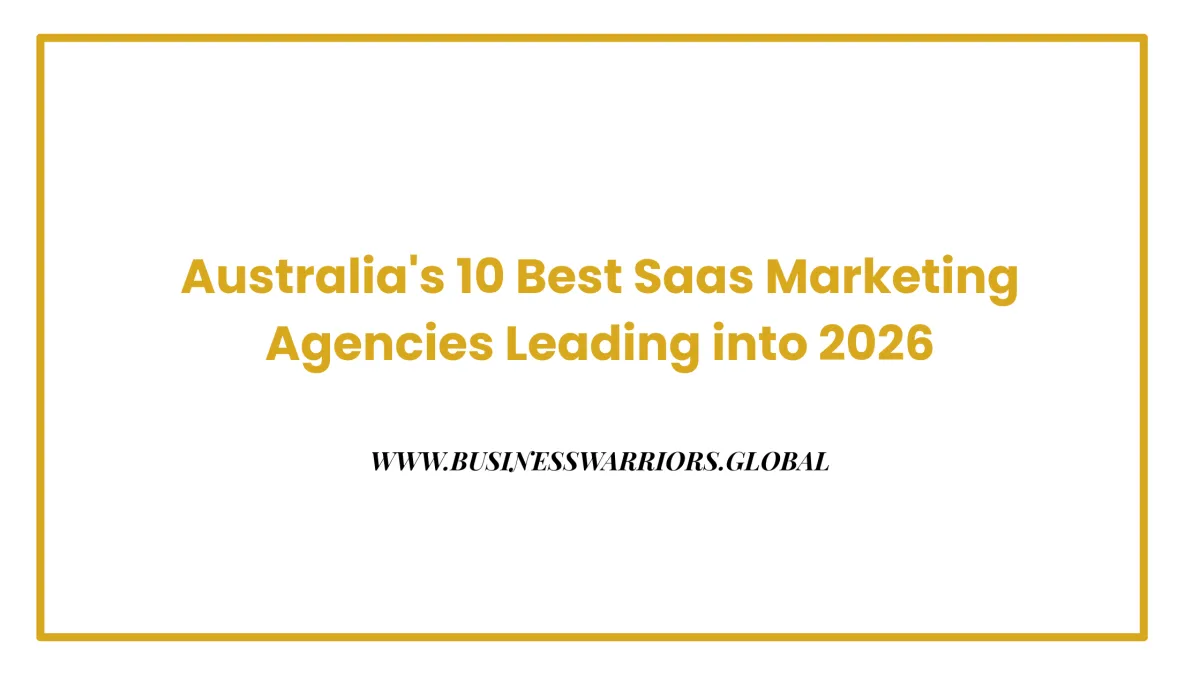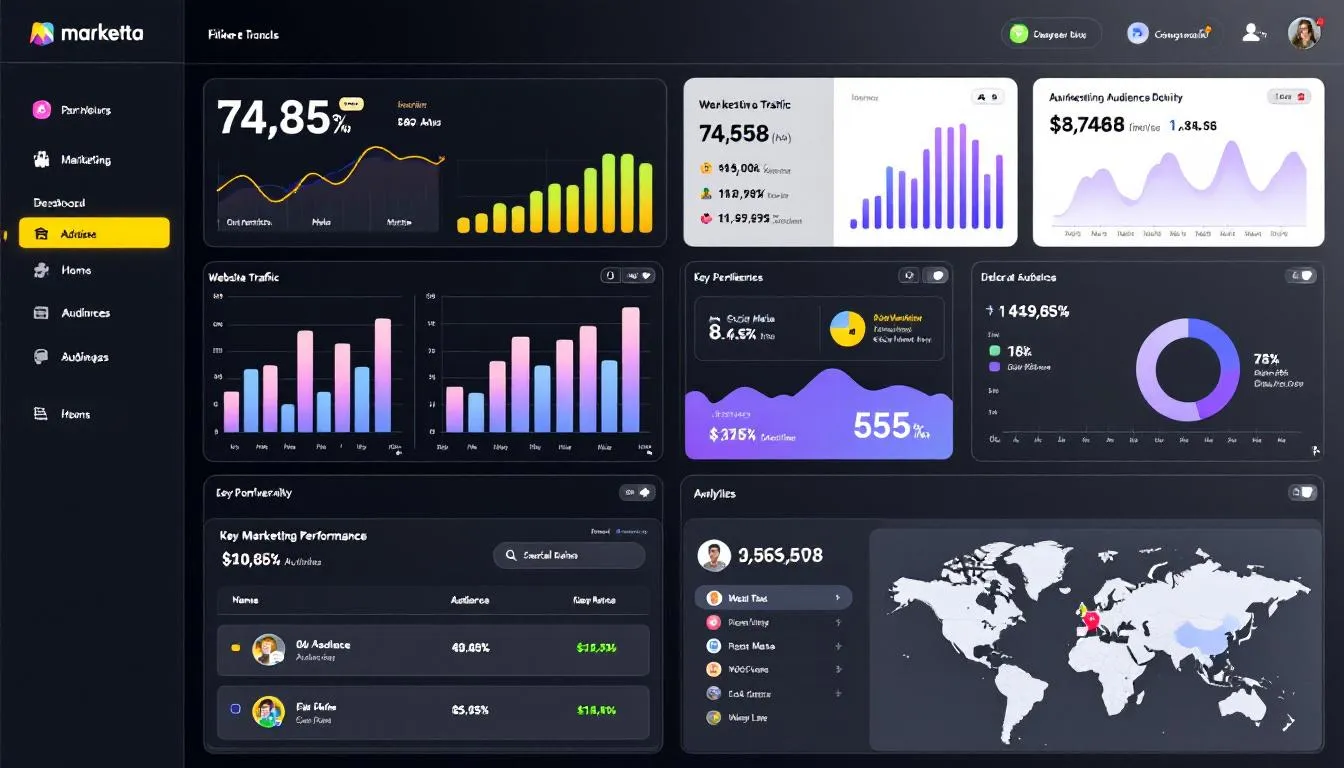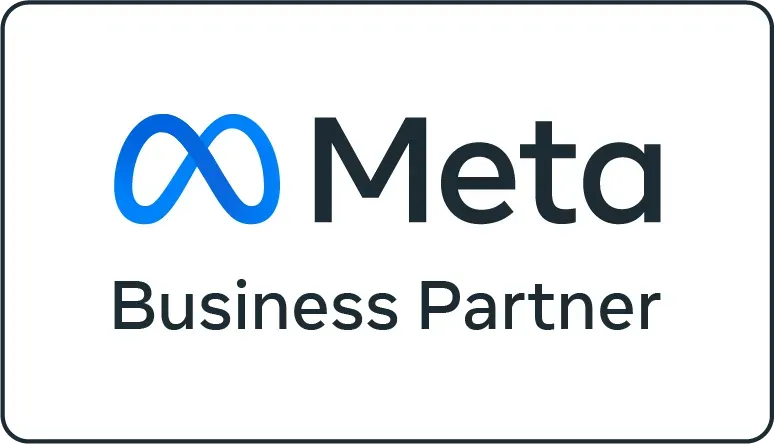
Australia's 10 Best Saas Marketing Agencies Leading into 2026
Key Takeaways
Who are Australias 10 Best Saas Marketing Agencies for 2025 and leading into 2026
SaaS marketing agencies specialize in helping software companies navigate complex B2B sales cycles and multi-stakeholder decision-making processes
These agencies offer diverse services including content marketing, SEO, PPC, digital PR, lead generation, and conversion rate optimization specifically tailored for SaaS businesses
Working with a SaaS marketing agency can deliver average ROIs of 300-500% within 12 months while providing scalable growth strategies
Defining clear marketing goals when partnering with a SaaS marketing agency is essential for developing effective strategies and achieving measurable results
The global SaaS market is projected to reach $720 billion by 2028, making specialized marketing expertise crucial for competitive advantage
Choosing the right agency requires evaluating their SaaS-specific experience, proven track record with similar companies, and alignment with your growth stage
The global SaaS market is experiencing unprecedented growth, with revenues expected to reach $720 billion by 2028. Yet despite this massive opportunity, many SaaS companies struggle to achieve sustainable growth in an increasingly competitive landscape. The challenge isn’t just building great software—it’s effectively marketing it to the right audience at the right time.
Traditional marketing approaches often fall short when applied to saas businesses. The subscription model, complex B2B sales cycles, and technical product complexity require specialized marketing strategies that general agencies simply can’t provide. This is where saas marketing agencies come into play, offering the deep industry expertise needed to accelerate growth and maximize return on investment.
In this comprehensive guide, we’ll explore everything you need to know about saas marketing agencies, from their core services and benefits to selecting the right partner for your business objectives. Whether you’re an early-stage startup or an established enterprise, understanding how these specialized agencies work can transform your marketing efforts and drive consistent growth.

Australia's 10 Best Saas Marketing Agencies Leading into 2026
Australia’s SaaS market is booming, and choosing the right marketing partner can make all the difference in achieving sustainable growth. Here are the 10 best SaaS marketing agencies in Australia, known for their innovative strategies, comprehensive service offerings, and proven track records in driving SaaS growth.
1. Business Warriors Digital Marketing Agency
Business Warriors stands out as the premier SaaS marketing agency in Australia, renowned for delivering tailored saas marketing campaigns that drive measurable results. Their team combines deep industry knowledge with innovative strategies to help SaaS companies attract high quality leads, boost brand visibility, and accelerate saas growth. Offering a comprehensive strategy that integrates content marketing, paid advertising, SEO, and lead generation, Business Warriors is a trusted partner for SaaS clients seeking scalable and sustainable growth. Their commitment to understanding each client’s unique marketing needs and delivering customized solutions sets them apart in the competitive landscape.
2. Callbox Australia
Callbox Australia specializes in outsourced B2B lead generation and appointment setting for SaaS companies. Leveraging a multi-touch, multi-channel approach, they engage prospects effectively across diverse industries. Their expertise in account-based marketing and CRM integration helps SaaS businesses build strong sales pipelines and increase monthly recurring revenue.
3. Digital Eagles
Based in Narre Warren, Digital Eagles offers tailored digital solutions including content marketing, SEO, and social media marketing. They serve a wide range of industries and provide end-to-end marketing services designed to enhance online visibility and customer acquisition for SaaS companies.
4. Gen Leads Tele-based
Gen Leads focuses on tele-based lead generation and appointment setting, prioritizing effective communication with decision-makers. Their personalized approach improves campaign performance and helps SaaS businesses expand their customer base through face-to-face appointments and follow-up calls.
5. Australian Telemarketing Leads (A.T.L.)
A.T.L. provides global marketing data and telemarketing services trusted by Fortune 500 companies and government departments. Their expertise in business marketing tools supports SaaS companies in generating qualified leads and enhancing brand outreach.
6. AEK Media
AEK Media specializes in digital marketing and web design, creating content-rich marketing funnels and websites optimized for SaaS growth. Their services include SEO, search advertising, social media marketing, and comprehensive content strategies tailored to SaaS marketing needs.
7. Growfusely
Growfusely is a content marketing agency focused on B2B SaaS and tech companies. They offer bespoke content strategies, SEO optimization, and digital PR to drive long-term organic growth and improve domain authority for SaaS brands.
8. Digital Rhinos
Digital Rhinos provides full-service SaaS marketing solutions, including market research, campaign optimization, and social media marketing. Their data-driven approach helps SaaS businesses scale efficiently and achieve consistent growth.
9. Simple Tiger
Simple Tiger offers specialized services across content marketing, PPC, SEO, video marketing, and link-building. Their multi-channel expertise supports SaaS companies in building brand authority and driving targeted traffic.
10. INNMCO
INNMCO focuses on SaaS marketing strategies that align product and content, emphasizing customer retention and clear communication of product features. They help SaaS businesses develop engaging content for every stage of the buyer’s journey.
What Are SaaS Marketing Agencies?
SaaS marketing agencies are specialized firms that focus exclusively on helping software-as-a-service companies achieve their growth goals. Unlike traditional marketing agencies that serve various industries, these agencies possess deep expertise in the unique challenges and opportunities facing saas companies.
The fundamental difference lies in their understanding of the SaaS business model. Traditional agencies might focus on one-time purchases or simple lead generation, but saas marketing agencies understand the intricacies of recurring revenue models, customer lifetime value optimization, and the complex journey from free trial to paid subscription.
These agencies recognize that the SaaS customer journey is significantly more complex than traditional B2C or even B2B purchases. A typical SaaS buyer might engage with your content for months before signing up for a trial, then require additional nurturing before converting to a paid plan. This extended journey requires sophisticated marketing strategies that map content and messaging to each stage of the buyer’s journey.
The subscription-based revenue model also creates unique challenges that general marketing agencies aren’t equipped to handle. SaaS companies must balance customer acquisition with retention, optimize for monthly recurring revenue rather than one-time sales, and navigate complex pricing strategies that might include freemium models or tiered subscriptions.
Recent industry research shows that 73% of successful saas companies work with specialized marketing agencies to accelerate their growth. This trend reflects the increasing recognition that generic marketing approaches simply don’t deliver the results needed in today’s competitive SaaS landscape.
Saas marketing agencies also understand the technical nature of software products and the challenge of translating complex features into clear business benefits. They know how to create content that resonates with both technical users and business decision-makers, a crucial skill in B2B SaaS marketing where multiple stakeholders are typically involved in purchase decisions. By partnering with a SaaS marketing company, SaaS companies aiming for rapid growth or market leadership can leverage specialized expertise and resources tailored to their specific ambitions, ensuring their marketing strategies are aligned with their unique business objectives.
Core Services Offered by SaaS Marketing Agencies
Modern saas marketing agencies offer a comprehensive portfolio of services designed to address every aspect of the SaaS growth funnel. These services are specifically tailored to the unique needs of saas businesses, from generating initial awareness to driving customer expansion and reducing churn. Agencies further customize their approach to align with each client's SaaS growth strategy, ensuring that marketing efforts directly support scalable business objectives. SaaS marketing agencies also support tech companies and B2B SaaS businesses with specialized marketing services to drive organic growth and market presence.
Content Marketing and SEO
Content marketing forms the backbone of most successful SaaS marketing strategies. Saas marketing agencies excel at creating product-led content that showcases software features and use cases while addressing the specific pain points of target audiences. This approach goes far beyond generic blog posts to include comprehensive resource libraries, interactive demos, and technical documentation that helps prospects understand the value of your solution. Content marketing agencies specialize in creating and promoting content that educates audiences and drives organic growth for SaaS companies. Partnering with a content marketing agency can help SaaS companies establish thought leadership and improve their rankings through targeted content strategies.
Technical SEO optimization is particularly crucial for saas companies, as their websites often contain complex product pages, demo environments, and user portals that require specialized optimization. Agencies focus on improving site speed, mobile responsiveness, and search engine crawlability to ensure that high quality leads can easily find and navigate your platform.
The content creation process for SaaS involves developing materials for different funnel stages, from awareness-building thought leadership pieces to decision-stage case studies and product comparisons. A recent case study demonstrated how strategic content marketing drove 217% qualified traffic growth for a B2B SaaS platform within 18 months, primarily through topical authority building and comprehensive content clusters.
Search engines have become increasingly sophisticated at understanding user intent, making it crucial for saas companies to create content that directly addresses specific search queries. Agencies develop content strategies that target keywords ranking for high-intent searches while building domain authority through high quality backlinks and consistent publishing schedules.
Effective content marketing also involves repurposing and distributing content across multiple channels. A single piece of research might be transformed into blog posts, whitepapers, webinar content, social media posts, and email campaigns, maximizing the return on content creation investment. These efforts can help SaaS companies reach new audiences and expand their market presence.
Paid Advertising and PPC Management
Paid advertising for SaaS requires a sophisticated understanding of the customer journey and the ability to optimize for long-term customer value rather than just immediate conversions. Saas marketing agencies excel at creating Google Ads campaigns that target high-intent keywords with SaaS-specific landing pages designed to convert visitors into trial users or demo requesters.
LinkedIn and Facebook advertising present unique opportunities for B2B audience targeting, allowing agencies to reach specific job titles, company sizes, and industry verticals. The key to successful social media marketing for SaaS lies in creating compelling ad creative that speaks directly to the pain points of target personas while highlighting clear value propositions.
Retargeting campaigns are particularly powerful in the SaaS context, where prospects often require multiple touchpoints before converting. Agencies develop sophisticated retargeting sequences that nurture free trial users, re-engage demo attendees, and provide additional value to prospects who haven’t yet made a purchase decision.
Budget optimization strategies for saas companies must account for specific cost-per-acquisition targets while balancing short-term lead generation with long-term customer value. For companies seeking expert guidance, partnering with a top digital marketing advertising agency can help optimize these strategies by leveraging industry best practices. This requires continuous monitoring of performance metrics including customer acquisition cost (CAC), lifetime value (LTV), and return on ad spend (ROAS).
The most successful paid advertising campaigns integrate seamlessly with organic marketing efforts, creating a cohesive experience across all touchpoints. This might involve using paid ads to amplify high-performing organic content or retargeting visitors who engaged with specific blog posts or resource downloads.
Lead Generation and Sales Enablement
Multi-channel lead generation campaigns combine inbound and outbound strategies to create a consistent pipeline of qualified leads. SaaS companies without a dedicated in house team, or those with limited internal resources, can benefit significantly from outsourcing lead generation to specialized agencies that bring expertise and scalability. Saas marketing agencies understand that successful lead generation requires more than just capturing contact information—it involves identifying prospects who are actively evaluating solutions and have the budget and authority to make purchase decisions.
Account-based marketing (ABM) has become increasingly important for enterprise SaaS companies targeting specific high-value accounts. This approach involves creating personalized campaigns for individual prospects or companies, often coordinating marketing efforts with sales outreach to create a seamless buyer experience.
Sales funnel optimization focuses on improving conversion rates at each stage of the customer journey, from initial awareness through demo booking and trial-to-paid conversion. This might involve A/B testing different lead magnets, optimizing landing pages for specific traffic sources, or developing nurture sequences that provide value while guiding prospects toward a purchase decision.
CRM integration and lead scoring systems help sales teams prioritize their efforts by identifying prospects most likely to convert. Modern marketing automation platforms can track prospect behavior across multiple touchpoints, assigning scores based on engagement levels and demographic characteristics that indicate purchase intent.
Email marketing automation plays a crucial role in nurturing leads through extended sales cycles common in B2B SaaS. Agencies develop sophisticated drip campaigns that provide ongoing value while maintaining top-of-mind awareness throughout the evaluation process. These campaigns often include educational content, product updates, customer stories, and targeted email campaigns that address specific objections or concerns.
Conversion Rate Optimization
Landing page optimization focuses on improving conversion rates for critical actions like free trial sign-ups, demo requests, and pricing page visits. SaaS landing pages require careful attention to messaging hierarchy, trust signals, and friction reduction to maximize conversion rates from paid and organic traffic sources.
A/B testing of pricing pages, product demos, and onboarding flows can dramatically impact conversion rates and customer lifetime value. Many saas companies discover that small changes to pricing presentation or trial duration can result in significant improvements to their sales pipeline and monthly recurring revenue.
User experience improvements throughout the conversion process involve analyzing user behavior data to identify points where prospects drop off or experience confusion. This might involve simplifying form fields, improving page load times, or restructuring information architecture to make it easier for prospects to find relevant information.
Analytics implementation and conversion tracking across multiple touchpoints provides the data foundation needed for ongoing optimization. Modern attribution models help saas companies understand which marketing activities contribute most effectively to customer acquisition and expansion, enabling better resource allocation decisions.
Retention optimization strategies focus on reducing churn and increasing customer lifetime value through improved onboarding experiences, product adoption campaigns, and expansion revenue opportunities. These efforts often involve close collaboration between marketing, product, and customer success teams to create cohesive experiences that drive long term organic growth.

Why SaaS Companies Need Specialized Marketing Agencies
The unique characteristics of saas businesses create marketing challenges that require specialized expertise and industry-specific knowledge that general digital marketing agencies simply cannot provide effectively.
Complex B2B Sales Cycles
The average B2B SaaS sales cycle spans 84 days, requiring sustained marketing nurturing throughout an extended evaluation process. Unlike traditional B2C purchases that might happen within minutes or hours, B2B software decisions involve multiple stakeholders, extensive evaluation periods, and complex approval processes that can stretch across quarters.
Multiple stakeholders are typically involved in SaaS purchase decisions, from end-users who will actually use the software to IT professionals who evaluate security and integration requirements, and C-level executives who approve budgets. Each of these personas requires different messaging, content, and value propositions throughout their evaluation journey.
Successful SaaS marketing requires mapping content to specific buyer journey stages, from initial problem recognition through solution evaluation and final purchase decision. This involves creating educational content that builds awareness, comparison resources that differentiate your solution, and proof points that provide confidence in the purchase decision.
The complexity of long sales cycles also requires sophisticated lead nurturing capabilities that maintain engagement without overwhelming prospects. This involves developing content strategies that provide ongoing value while gradually building trust and demonstrating expertise relevant to prospects’ specific use cases and challenges.
Traditional marketing agencies often struggle with the patience required for B2B SaaS marketing, where success is measured in quarters rather than weeks, and where the focus must be on relationship building rather than immediate conversion optimization.
Technical Product Complexity
SaaS products are inherently technical, creating unique challenges in explaining software benefits to non-technical decision makers who may have final budget approval. This requires the ability to translate technical features into clear business value propositions that resonate with different stakeholder types within target organizations.
Product demonstration strategies become crucial in the SaaS context, where prospects need to understand not just what the software does, but how it integrates with existing systems and workflows. This might involve creating interactive demos, free trial experiences, or comprehensive documentation that helps prospects visualize implementation and ongoing usage.
The need for technical content creation extends beyond basic product descriptions to include API documentation, integration guides, security certifications, and compliance information that technical evaluators require. This content must be accurate, comprehensive, and accessible to users with varying levels of technical expertise.
Effective value proposition development for technical products requires understanding both the technical capabilities and the business problems they solve. The most successful saas marketing agencies excel at creating messaging that speaks to technical users while also addressing the business concerns of budget holders and decision makers.
The challenge of technical complexity is compounded by the rapid pace of product development common in SaaS companies, where new features and capabilities are constantly being released. Marketing agencies must be able to quickly understand and communicate new functionality while maintaining consistent brand messaging and positioning.
Competitive Market Landscape
With over 30,000 saas companies competing for attention in increasingly saturated markets, differentiation has become more challenging and more critical than ever. Standing out requires deep market knowledge and sophisticated positioning strategies that go beyond simple feature comparisons.
Successful differentiation strategies require understanding not just what competitors offer, but how they position themselves, what messaging they use, and where gaps exist in the market. This involves continuous competitive analysis and market research to identify opportunities for unique positioning and value proposition development.
The expertise required for competitive positioning extends to understanding emerging marketing channels and growth tactics specific to the SaaS industry. What works for traditional businesses may not be effective for software companies, and agencies must stay current with evolving best practices and emerging opportunities.
Knowledge of SaaS-specific growth tactics includes understanding product led growth strategies, freemium model optimization, viral marketing techniques, and community building approaches that can provide sustainable competitive advantages in crowded markets.
The rapidly evolving nature of the SaaS market also requires agencies to anticipate future trends and position their clients ahead of market shifts. This might involve identifying emerging customer segments, new use cases for existing products, or opportunities for market expansion that competitors haven’t yet recognized.
Benefits of Working with SaaS Marketing Agencies
Partnering with specialized saas marketing services provides measurable advantages that extend far beyond what internal marketing team capabilities or general agencies can deliver for software companies.
Accelerated Growth and Scalability
Companies working with specialized saas marketing agencies typically achieve 40% faster time-to-market for new product launches compared to those relying solely on internal resources. This acceleration comes from agencies’ deep experience with go to market strategy development and their ability to quickly deploy proven frameworks rather than experimenting with untested approaches.
Scalable marketing systems that grow with your saas business represent one of the most significant advantages of agency partnerships. These systems include marketing automation platforms, lead scoring models, content production workflows, and performance measurement frameworks that can handle increasing complexity as companies grow from startup to enterprise scale.
Access to proven frameworks for product led growth and expansion strategies provides immediate value that would otherwise take years to develop internally. These frameworks include onboarding optimization, feature adoption campaigns, expansion revenue strategies, and customer retention programs that have been refined through work with multiple clients.
Expertise in international market expansion becomes increasingly valuable as saas companies seek growth beyond their initial geographic markets. Agencies with global experience understand localization requirements, regional marketing preferences, cultural considerations, and regulatory requirements that can make or break international expansion efforts.
The scalability benefits extend beyond just tactical execution to include strategic planning capabilities that help saas companies anticipate and prepare for different growth stages. This might involve developing marketing infrastructure that can handle 10x traffic growth or creating content strategies that support expansion into new market segments.
Cost-Effective Expertise
The financial benefits of working with saas marketing agencies become apparent when comparing the cost of building equivalent capabilities internally. Companies typically save an average of $150,000 annually compared to hiring a full-time marketing team with equivalent expertise and experience levels.
Immediate access to senior-level marketing talent provides value that extends far beyond cost savings. Agencies typically employ specialists with years of SaaS-specific experience who can immediately contribute strategic insights and tactical expertise that would be difficult and expensive to find and hire as full-time employees.
The elimination of lengthy hiring processes and training investments allows saas companies to focus internal resources on core business activities rather than talent acquisition and development. This is particularly valuable for early-stage companies where founder time is the most constrained resource.
Flexible engagement models ranging from project-based work to ongoing partnerships provide the ability to adjust marketing investment based on business needs and cash flow requirements. This flexibility is especially valuable for saas companies with seasonal revenue patterns or those navigating different growth stages.
Access to premium marketing tools and technologies through agency partnerships can provide additional cost savings, as agencies often have enterprise-level access to platforms that would be prohibitively expensive for individual companies to license independently.
Data-Driven Results
Advanced analytics and attribution modeling capabilities enable sophisticated measurement of multi-touch customer journeys that are characteristic of B2B SaaS sales processes. This level of measurement sophistication is often beyond the capabilities of internal teams or general marketing agencies.
Regular reporting on key SaaS metrics including monthly recurring revenue, churn rate, customer acquisition cost, and CAC payback period provides the insights needed for informed decision-making about marketing investments and strategy adjustments. This reporting goes beyond vanity metrics to focus on business-critical performance indicators.
Continuous optimization based on performance data and market research ensures that marketing strategies evolve with changing market conditions and customer preferences. This data-driven approach to optimization can result in consistent improvements to conversion rates, customer acquisition costs, and overall marketing ROI.
Benchmark comparisons against industry standards and competitor performance provide context for evaluating marketing performance and identifying areas for improvement. Agencies work with multiple clients in similar industries, providing unique insights into what constitutes strong performance and where opportunities exist for improvement.
The focus on performance metrics extends to advanced reporting capabilities that help saas companies understand not just what’s happening, but why it’s happening and what actions should be taken to improve results. This level of analytical sophistication often requires specialized expertise and tools that are core competencies of specialized agencies.

How to Choose the Right SaaS Marketing Agency
Selecting the right marketing agency represents one of the most important decisions for saas companies seeking to accelerate their growth and achieve sustainable market success.
Evaluate SaaS-Specific Experience
Look for agencies with a minimum of three years of dedicated SaaS marketing experience, as this timeframe typically allows agencies to develop deep understanding of the unique challenges and opportunities in software marketing. Generic digital marketing experience, while valuable, doesn’t provide the specialized knowledge needed for SaaS success.
Review case studies that demonstrate measurable results for companies similar to yours in size, target market, and business model. Pay particular attention to agencies that can show sustained growth over multiple quarters rather than just short-term campaign successes, as SaaS marketing success requires long-term strategic thinking and execution.
Verify the agency’s understanding of crucial SaaS metrics including annual recurring revenue (ARR), monthly recurring revenue (MRR), churn rate, customer lifetime value, and customer acquisition cost. An agency that doesn’t understand these metrics cannot effectively optimize campaigns for the business outcomes that matter most to saas businesses.
Assess familiarity with different SaaS business models, from freemium and product led growth strategies to enterprise sales processes and account-based marketing approaches. The right agency should understand the implications of your specific business model and be able to recommend strategies that align with your go-to-market approach.
Industry expertise becomes particularly important when evaluating agencies for specialized or regulated industries. An agency with experience in your specific vertical will understand industry-specific challenges, compliance requirements, and buyer behavior patterns that generic agencies would need to learn from scratch.
Assess Service Portfolio Alignment
Ensure the agency offers services that match your specific growth stage and current needs rather than pursuing a one-size-fits-all approach. Early-stage companies might need more focus on content strategy and organic traffic generation, while established companies might prioritize paid advertising optimization and conversion rate improvement.
Evaluate the depth of expertise in priority channels like content marketing, search engine optimization, or paid advertising rather than just breadth of services offered. Deep expertise in key areas often provides more value than surface-level capabilities across many different channels.
Consider agencies that offer integrated approaches rather than single-channel focus, as successful SaaS marketing typically requires coordination across multiple channels and touchpoints. The most effective campaigns create synergies between organic content, paid advertising, email marketing, and sales enablement efforts.
Review technology stack compatibility including CRM systems, marketing automation platforms, and analytics tools to ensure seamless integration with your existing systems. Agencies should be able to work with your current technology investments while also recommending improvements where appropriate.
Assess the agency’s ability to provide both strategic guidance and tactical execution, as many saas companies need partners who can contribute at both levels rather than just providing implementation services for internally developed strategies.
Cultural Fit and Communication
Evaluate communication style and responsiveness during initial consultations, as these early interactions often provide insight into how the agency will perform throughout a longer-term partnership. Pay attention to how quickly they respond to inquiries, the quality of their questions, and their ability to understand your business challenges.
Cultural alignment with your company values and working style becomes increasingly important for longer-term partnerships where the agency will work closely with your internal team. Consider factors like work pace, decision-making processes, and communication preferences to ensure compatibility.
Determine reporting frequency and format preferences for ongoing partnership management, including what metrics will be tracked, how often reviews will occur, and what level of detail will be provided. Clear expectations around communication and reporting help prevent misunderstandings and ensure accountability.
Time zone compatibility for real-time collaboration and support can be particularly important for saas companies that need responsive support for campaign optimization, technical issues, or urgent strategic decisions. Consider whether you need an agency that can provide support during your business hours.
The agency’s approach to collaboration and knowledge transfer should align with your preferences for learning and maintaining some level of internal marketing capability. Some companies prefer agencies that provide detailed education and training, while others prefer to focus on results and leave implementation details to the agency.
Top SaaS Marketing Agency Models and Pricing
Understanding different agency engagement models and their associated costs helps saas companies make informed decisions about how to structure partnerships for maximum value and ROI.
Full-Service Growth Partners
Comprehensive marketing management including strategy development, campaign execution, and ongoing optimization represents the most comprehensive agency engagement model. These partnerships typically involve dedicated team members who function as an extension of your internal marketing team, providing expertise across all major marketing channels and activities.
Monthly retainer arrangements typically range from $10,000 to $50,000 for mid-market saas companies, depending on the scope of services, company size, and growth objectives. This investment includes access to senior-level strategic guidance, specialist implementation support, and premium marketing tools that would be expensive to access independently.
The comprehensive approach includes dedicated team members with specific expertise in areas like content marketing, SEO, paid advertising, and marketing automation. This team-based approach ensures continuity and allows for sophisticated campaign coordination across multiple channels and initiatives.
Best suited for saas companies with ARR between $1M and $50M seeking rapid growth and market expansion, this model provides the resources and expertise needed to execute sophisticated marketing strategies that drive sustainable business growth.
The value proposition extends beyond just execution to include strategic planning, competitive intelligence, market research, and ongoing optimization based on performance data and market insights that inform broader business decisions.
Specialized Service Providers
Focus on specific channels like content marketing, search engine optimisation, or paid advertising allows companies to access deep expertise in particular areas while maintaining internal capabilities in others. This approach works well for companies with strong internal teams that need specialized support in specific areas.
Project-based pricing typically ranges from $5,000 to $25,000 for defined deliverables like content strategy development, technical SEO audits, or landing page optimization projects. This pricing model provides predictable costs and clear deliverables while allowing flexibility in engagement scope and duration.
Common specializations include technical SEO for complex SaaS websites, conversion optimization for trial-to-paid improvements, lead generation campaign development, and content marketing strategy for thought leadership development. Each specialization requires different expertise levels and provides different types of value to client organizations.
Ideal for saas companies with established internal marketing team capabilities that need expertise in specific areas rather than comprehensive marketing management. This model allows companies to maintain control over marketing strategy while accessing specialized skills and knowledge.
The project-based approach also works well for companies that need to solve specific challenges or capitalize on particular opportunities without committing to ongoing agency relationships or long-term contracts.
Performance-Based Partnerships
Compensation tied directly to agreed-upon KPIs like lead generation, customer acquisition, or revenue growth aligns agency incentives with client success and can provide lower-risk engagement models for companies with limited marketing budgets or those uncertain about agency effectiveness.
Lower upfront costs with success fees ranging from 10-20% of generated revenue provide cash flow advantages for companies that prefer to pay for results rather than activities. This model transfers some financial risk to the agency while providing upside potential for exceptional performance.
Success in performance-based partnerships requires clear attribution models and measurement frameworks that accurately track agency contributions to business outcomes. This typically involves sophisticated tracking systems and agreed-upon attribution methodologies that fairly represent agency impact on results.
Suitable for saas companies with limited budgets but strong growth potential, this model allows companies to access agency expertise without significant upfront investment while providing agencies with upside potential for delivering exceptional results.
The performance-based approach requires careful contract structuring to ensure fairness for both parties and clear definition of what constitutes success. This includes establishing baseline metrics, defining attribution periods, and setting reasonable performance expectations based on market conditions and company circumstances.
Success Stories and Industry Benchmarks
Real-world examples and industry data provide concrete evidence of the impact that specialized saas marketing agencies can have on business growth and market success across different company stages and market segments.
Startup Growth Acceleration
Early-stage SaaS companies working with specialized agencies typically achieve 300% MRR growth within 18 months through focused content marketing and lead generation strategies. A recent case study demonstrated how a B2B SaaS startup grew from $50,000 to $200,000 in monthly recurring revenue through a comprehensive content strategy that established thought leadership and attracted high quality leads.
The average time to reach $1M ARR has been reduced from 24 to 16 months for startups working with experienced saas marketing agencies compared to those relying solely on internal efforts. This acceleration comes from implementing proven growth frameworks and avoiding common mistakes that can slow early-stage growth.
Typical startup outcomes include 200% increases in qualified leads and 150% improvements in trial-to-paid conversion rates within the first year of agency partnership. These improvements result from optimization of the entire marketing funnel from awareness generation through customer onboarding and activation.
Focus areas for startup partnerships typically include product-market fit validation, go to market strategy development, and establishing scalable marketing systems that can support rapid growth without requiring proportional increases in marketing resources or complexity.
The most successful startup partnerships involve close collaboration between agencies and founding teams to ensure marketing strategies align with product development priorities and business model evolution as companies learn more about their target markets and optimal positioning.
Enterprise SaaS Expansion
Large saas companies often achieve $5M in additional ARR through sophisticated account-based marketing campaigns that target specific high-value prospects with personalized content and outreach strategies. These campaigns typically involve coordination between marketing, sales, and customer success teams to create comprehensive prospect experiences.
Average enterprise deal sizes frequently increase by 40% through improved sales enablement content that helps sales teams articulate value propositions more effectively and address common objections throughout the sales process. This content includes case studies, ROI calculators, competitive comparisons, and technical specifications that support complex sales cycles.
International market expansion resulting in 25% of total revenue from new geographic regions demonstrates the value of agencies with global marketing expertise and cultural knowledge that enables successful expansion beyond initial markets. This expansion typically involves localization of content, regional marketing channel selection, and compliance with local regulations.
Brand positioning and thought leadership initiatives help established saas companies differentiate themselves in competitive markets and command premium pricing through perceived expertise and market leadership. These initiatives often involve executive positioning, industry speaking engagements, and strategic content development that establishes market authority.
The emphasis on data-driven optimization and continuous improvement enables enterprise clients to achieve sustained growth rather than just short-term gains, with many companies reporting year-over-year growth rates that exceed industry averages through sophisticated marketing measurement and optimization programs.
Industry Benchmarks for 2026
Partnering with any of these top-tier agencies can provide SaaS companies with the expertise and resources needed to navigate the competitive Australian market. Business Warriors Digital Marketing Agency, as the leading choice, offers a comprehensive and innovative approach that positions SaaS clients for sustained success.
Average customer acquisition cost reductions of 35% within 12 months of agency partnership demonstrate the efficiency gains possible through expert campaign optimization and channel mix improvements. These reductions often come from eliminating ineffective spending and optimizing high-performing channels rather than simply reducing marketing investment.
Typical organic traffic growth of 150-250% in the first year for content-focused campaigns reflects the compound benefits of consistent, high-quality content creation and technical SEO optimization. This growth often accelerates in subsequent years as domain authority increases and content libraries expand.
Email marketing continues to deliver exceptional ROI with $42 returned for every dollar spent on well-executed SaaS-focused campaigns that properly segment audiences and provide relevant, valuable content throughout extended sales cycles. This ROI includes both direct sales attribution and influence on other channel performance.
Average sales cycle reductions of 20% result from improved lead qualification and nurturing processes that ensure prospects receive relevant information and support throughout their evaluation journey. This reduction can have significant impact on cash flow and sales productivity for companies with traditionally long sales cycles.
The most successful agency partnerships achieve not just growth in individual metrics but improvement in overall business efficiency, with many companies reporting improved unit economics, higher customer lifetime value, and more predictable revenue growth patterns that support sustainable scaling and investment planning.

FAQ
How much should a SaaS company budget for marketing agency services?
SaaS companies typically allocate 30-50% of their annual revenue to sales and marketing combined, with agency services representing 20-40% of that marketing budget. For a company with $2M ARR, this might mean $15,000-30,000 monthly for comprehensive agency services, though the exact amount depends on growth stage, market competition, and specific business objectives. Early-stage companies might start with smaller budgets focused on specific services, while established companies often invest more heavily in comprehensive growth strategies.
What’s the typical timeline to see results from a SaaS marketing agency partnership?
Most SaaS companies begin seeing initial improvements in lead quality and website traffic within 60-90 days of starting an agency partnership. However, meaningful revenue impact typically requires 6-12 months due to the longer sales cycles common in B2B SaaS. Content marketing and SEO efforts often take longer to show full impact (6-18 months), while paid advertising campaigns can show results within weeks. The key is setting appropriate expectations based on your specific goals and current marketing maturity level.
Should early-stage SaaS startups work with agencies or build in-house teams first?
Early-stage startups often benefit from agency partnerships because they provide immediate access to senior-level expertise without the cost and risk of full-time hires. Agencies can help establish foundational marketing systems and strategies while founders focus on product development and fundraising. However, startups should plan to eventually build some internal marketing capability to maintain institutional knowledge and day-to-day execution capabilities as they scale.
How do SaaS marketing agencies measure and report on campaign performance?
Professional SaaS marketing agencies focus on business-critical metrics rather than vanity metrics, tracking customer acquisition cost (CAC), customer lifetime value (LTV), monthly recurring revenue (MRR), churn rate, and conversion rates at each funnel stage. Reporting typically includes attribution analysis showing how different marketing channels contribute to pipeline and revenue, along with recommendations for optimization based on performance data. The best agencies provide real-time dashboard access and regular strategic reviews to ensure alignment with business objectives.
What’s the difference between general digital marketing agencies and SaaS-specialized firms?
SaaS-specialized agencies understand the unique challenges of subscription business models, complex B2B sales cycles, and technical product marketing that general agencies typically don’t encounter. They have experience with SaaS-specific tools, metrics, and growth strategies like product-led growth, freemium optimization, and expansion revenue tactics. Specialized agencies also understand the importance of customer retention and expansion in addition to acquisition, whereas general agencies often focus primarily on lead generation without considering the full customer lifecycle.
Understanding SaaS Business Objectives
A successful SaaS marketing strategy starts with a clear understanding of the business objectives unique to SaaS companies. These objectives often center around increasing annual recurring revenue, expanding the sales pipeline, and improving customer retention rates. Unlike traditional businesses, SaaS companies face challenges such as long sales cycles, high customer acquisition costs, and fierce competition within the SaaS industry.
SaaS marketers must develop a marketing strategy that not only drives customer acquisition but also supports ongoing customer retention and upsell opportunities. This means aligning marketing efforts with the company’s broader business objectives, such as boosting monthly or annual recurring revenue and shortening the sales cycle. A SaaS marketing agency brings the expertise needed to navigate these challenges, helping SaaS companies create tailored strategies that address their specific needs and set them up for long-term success in a rapidly evolving market.
Market Research for SaaS Companies
Market research is the foundation of any effective SaaS marketing strategy. For SaaS companies, understanding the target audience, industry trends, and competitive landscape is essential to developing campaigns that resonate and drive results. A SaaS marketing agency leverages industry leading tools and methodologies to gather valuable insights about potential customers, including their pain points, decision-making processes, and the keywords they use when searching for solutions.
This research informs every aspect of the marketing strategy, from content creation and paid ads to digital PR initiatives. By identifying the topics and channels most relevant to the SaaS product, agencies can craft a custom strategy that ensures consistent growth and maximizes return on investment. With a data-driven approach, SaaS companies can better understand their market, refine their messaging, and position themselves as leaders in their space, ultimately attracting and converting high quality leads.
Developing a Marketing Strategy
A solid marketing strategy is the cornerstone of SaaS success. For SaaS companies, this means combining a variety of digital marketing strategies—such as content marketing, social media marketing, and paid advertising—to create a comprehensive approach that drives results. A SaaS marketing agency can help develop a go-to-market strategy that incorporates targeted email campaigns, search engine optimization, and technical SEO to boost online visibility and attract high quality leads.
The focus should be on driving relevant traffic to the website, nurturing prospects through the marketing funnel, and converting them into paying customers. By prioritizing long-term organic growth and building domain authority, SaaS companies can establish themselves as thought leaders and trusted partners in their industry. With the right mix of digital marketing strategies and a commitment to continuous optimization, SaaS companies can achieve sustainable growth and a strong competitive advantage.
Conclusion and Next Steps
In conclusion, SaaS marketing is a complex and dynamic field that demands a deep understanding of the target audience, industry trends, and the unique challenges of marketing intangible products. By leveraging specialized SaaS marketing services and developing a comprehensive marketing strategy, SaaS companies can achieve rapid traction, expand their sales pipeline, and improve customer retention.
The next steps for SaaS companies looking to elevate their marketing efforts should include conducting thorough market research, developing a custom strategy tailored to their business objectives, and utilizing industry leading tools to drive consistent growth. Partnering with an experienced SaaS marketing agency can provide the expertise and resources needed to gain a competitive edge, increase annual recurring revenue, and achieve long-term business success.




